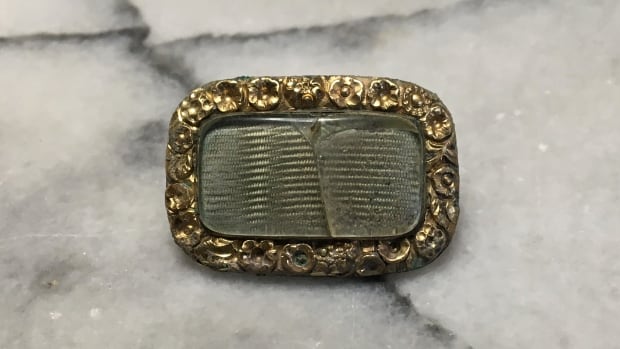
A man in Kamloops, B.C., is asking for help finding the descendants of the owner of a 209-year-old piece of jewelry he recently discovered in a local park.
Travis Bussard, 39, says he found the Georgian-era mourning pin while he was out metal detecting with his father near Riverside Park last week.
“It’s probably the most amazing thing I think I’ve found,” Bussard said.
“Any day you can find something that’s old with an engraving or inscription or something that relates to someone’s personal life is pretty incredible.”
Engraved on the back is an inscription that reads, “Elias Jeffs, Ob Jan 8, 1814, Abt 47.” Ob is short for obit, Bussard says, which is Latin for day of death.
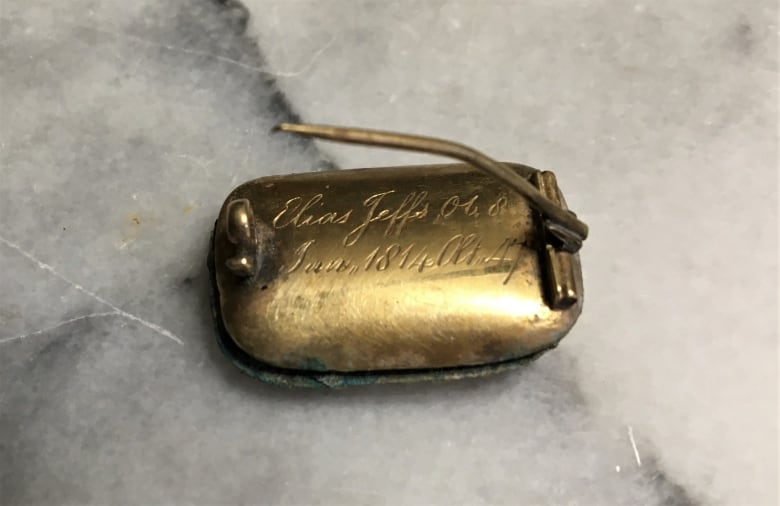
Bussard says he didn’t know what the item was when he first found it, so he posted a picture of it on a Facebook group for hobbyist metal detectors like himself.
Answers came flooding in that it was a mourning pin — a piece of jewelry designed to remember someone who has died. The item usually has an inscription related to the deceased and often includes a lock of hair.
‘A lost art’
Elisabeth Benamou, a Vancouver-based gemologist and mourning jewelry collector and trader, says these types of items date back centuries and were most popular in the Victorian era.
“For me, it’s a passion because I just appreciate so much the idea of remembering your loved ones,” Benamou said. “You know, it’s more of a sentimental attachment to this kind of jewelry.”
Benamou says this particular pin wouldn’t have much resale value because of its condition and the fact that it’s made from copper, not gold. Otherwise, she says, an item like this that has better withstood the test of time could fetch about $500.
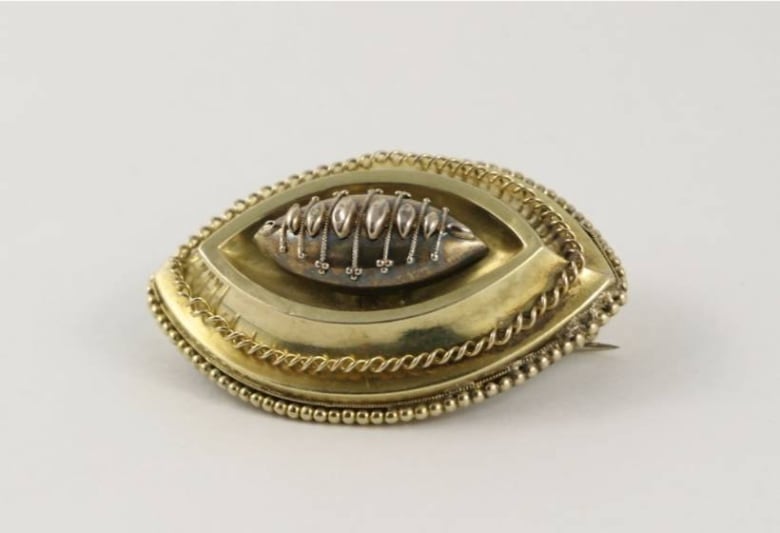
“It’s the beauty of the workmanship as well. Most of these are so intricate,” she said. “It would cost a fortune to make things that were made back then … it’s also a lost art.”
Benamou says the pin still has historical value, especially as a way for people to remember and commemorate their ancestors.
Seeking descendants
Bussard agrees, which is why he wants to find living descendants of the person memorialized on the pin. Seeking answers, he also posted images of the pin on another Facebook group, Historical B.C.
Bussard says he was “flooded with replies” from amateur historians.
So far, he says he has discovered that prior to 1799, Elias Jeffs worked as a farrier in Essex, England and was buried at St. Mary’s Church Walthamstow on Jan. 16, 1814.
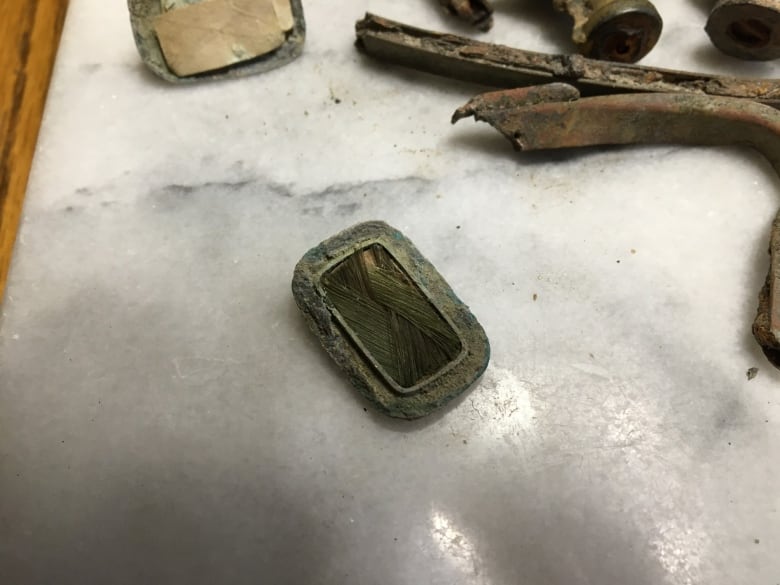
Bussard says Jeffs had a daughter, Elizabeth, born in 1794 and named after his wife.
He’s hoping to find out more information so he could pass the pin on to any of Elias Jeffs’s descendants.
“It’s just it’s such a personal momento,” he said, adding that there is hair woven into the back of the pin. “I kind of figured it would be best if [it was] given back to the family.”
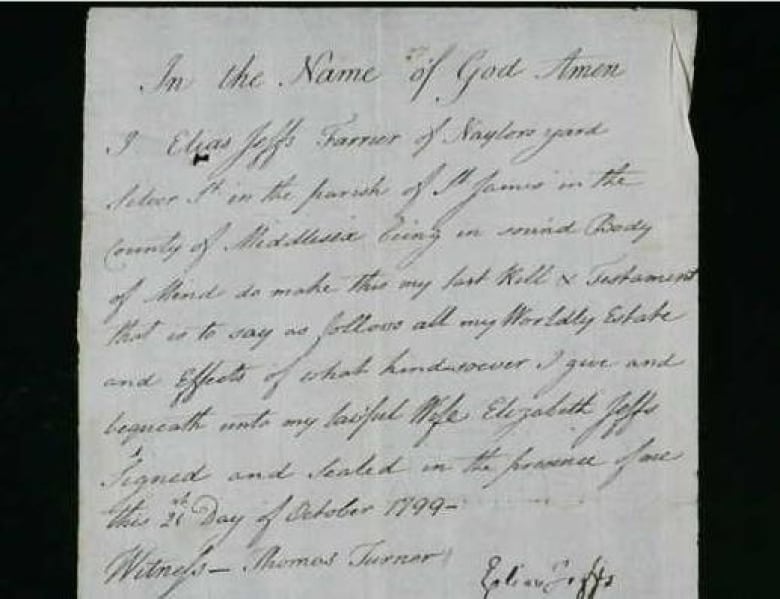
More found items
Bussard says he’s also curious to find out how the mourning pin found its way to the banks of the South Thompson River, especially given that the date on the inscription is only two years after Fort Kamloops was established in 1812.
Metal detecting has been a hobby of Bussard’s for about 12 years when he first bought his equipment with the intent of panning for gold. It sat gathering dust on a shelf for a few years until he pulled it out again to keep busy during the pandemic.
Over the years, Bussard says he has found all sorts of objects, especially when the river is low as it has been recently. These include gin bottles dating back to the 1800s and Chinese relics from when the railway was built.